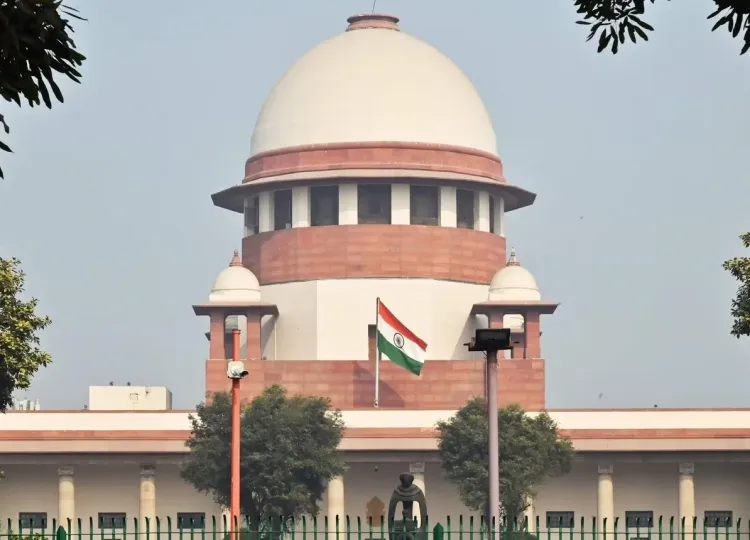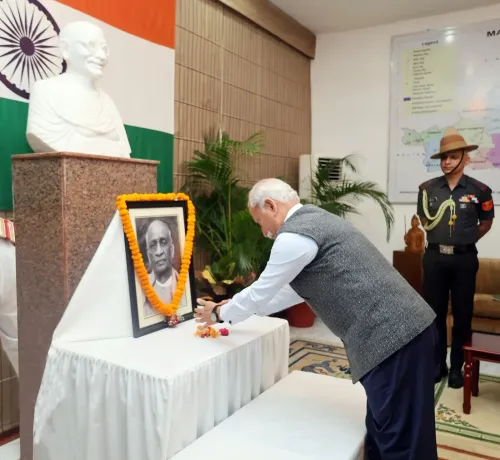Will the Supreme Court Rule on the Waqf Act 2025 Controversy?

Synopsis
Key Takeaways
- The Supreme Court has reserved its order on the Waqf (Amendment) Act.
- The Act aims to regulate Waqf properties but faces criticism.
- Petitioners argue it discriminates against Muslims.
- The government defends it as a tool against misuse.
- The outcome could shape the future of Waqf management in India.
New Delhi, May 22 (NationPress) The Supreme Court has postponed its decision following a thorough examination of petitions requesting a halt to the Waqf (Amendment) Act, 2025. This legislation has been staunchly supported by the government, which argues it aims to prevent the misuse of its provisions.
A panel consisting of Chief Justice of India B.R. Gavai and Justice A.G. Masih listened to the arguments from the petitioners and the government over three sessions before electing to reserve their judgment.
The legitimacy of the Act, which was enacted on April 5 with Presidential approval, is being contested by several parties, including All India Majlis-e-Ittehadul Muslimeen (AIMIM) MP Asaduddin Owaisi and Congress MP Mohammad Jawed.
When a lawyer raised concerns regarding the essence of donations in Waqf, Chief Justice Gavai remarked, "Charity is a fundamental principle of other religions also."
The petitioners argue that the amendment discriminates against the Muslim community.
Senior advocate Kapil Sibal, representing a petitioner, labeled the new provisions of the Waqf law as "unconstitutional" and "arbitrary".
He specifically criticized the provision that suspends the Waqf status of a property during an ongoing investigation. "There’s no timeline for the probe. It could last six months or more. During that period, the Muslim community would be denied access or rights over the property," Sibal stated.
"Who decides if a property is government-owned or Waqf? The process isn’t defined. The determination lies solely with the government, which can also alter revenue records — this is completely arbitrary," he added.
Senior advocate Rajeev Dhavan, representing the Muslim viewpoint, contended that no external officer or authority has the right to define what is or isn’t essential to a religion.
"Waqf is not just a legal entity, but a spiritual and social institution deeply woven into the lives of Muslims," Dhavan stated, referencing previous Supreme Court decisions.
In a notable comparison, he mentioned Hinduism: "Even temples are not essential in Hinduism as per the Vedas — nature worship exists: fire, water, rain, mountains, and oceans are revered."
Earlier, Solicitor General Tushar Mehta articulated the government’s stance, asserting that the concept of Waqf is not inherently a religious practice.
He stated that boards managing such Waqf properties are engaged in secular and administrative functions.
The recent law modifies the Waqf Act of 1995 to enhance the oversight of Waqf properties, which are religious endowments or properties dedicated solely for religious or charitable purposes under Islamic law.
The petitioners claim that the amendment signifies discrimination against Muslims and unwarranted interference in Islamic religious affairs and the management of Waqf properties.
On April 17, the apex court decided against issuing a stay on the Act following the government's commitment not to enforce certain provisions for the time being.









